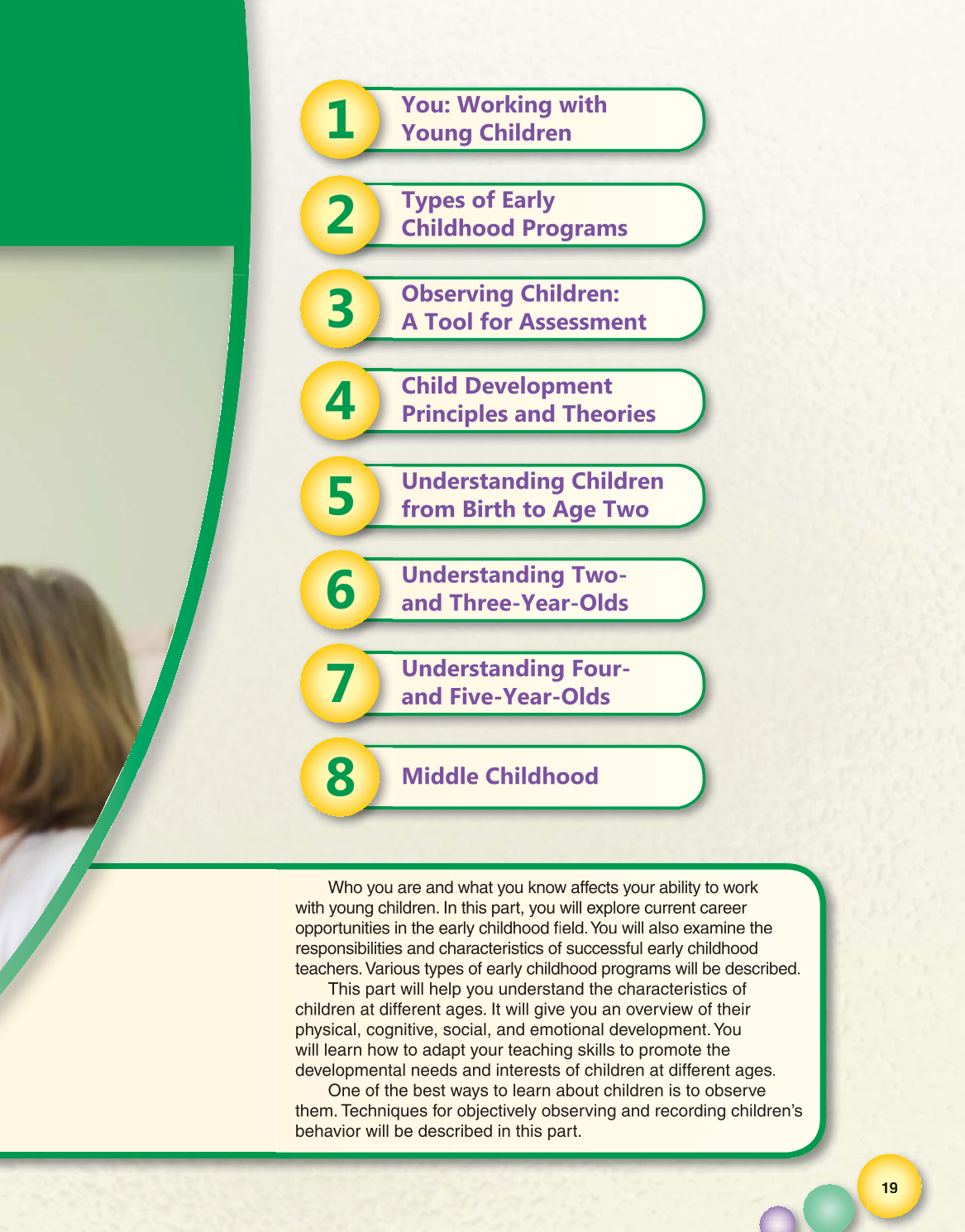19
Who you are and w wh at you know affects your ability to work
with young children. In t th is part, you will explore current career
opportunities in the early r childhood field. You will also examine the fi
responsibilities and characteristics a of successful early childhood
teachers. Various types s of early childhood programs will be described.
This part will help you understand the characteristics of
children at different ages. g It will give you an overview of their
physical, cognitive, social, and emotional development. You
will learn how to adapt t your teaching skills to promote the
developmental needs and interests of children at different ages.
One of the best w wa ys to learn about children is to observe
them. Techniques for objectively o observing and recording children’s
behavior will be descri ib ed in this part.
3
Observing Children:
A Tool for Assessment
2
Types of Early
Childhood Programs
1
You: Working with
Young Children
6
Understanding Two-
and Three-Year-Olds
5
Understanding Children
from Birth to Age Two
4
Child Development
Principles and Theories
8
Middle Childhood
7
Understanding Four-
and Five-Year-Olds
